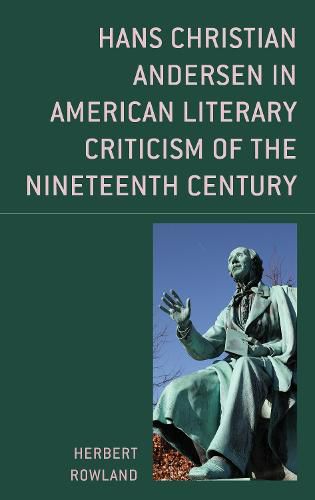Readings Newsletter
Become a Readings Member to make your shopping experience even easier.
Sign in or sign up for free!
You’re not far away from qualifying for FREE standard shipping within Australia
You’ve qualified for FREE standard shipping within Australia
The cart is loading…






In Hans Christian Andersen in American Literary Criticism of the Nineteenth Century, Herbert Rowland argues that the literary criticism accompanying the publication of Hans Christian Andersen’s works in the United States compares favorably in scope, perceptiveness, and chronological coverage with the few other national receptions of Andersen outside of Denmark. Rowland contends that American commentators made it abundantly evident that, in addition to his fairy tales, Andersen wrote several novels, travelogues, and an autobiography which were all of more than common interest. In the process, Rowland shows that American commentators naturalized Andersen in the United States by confronting the sensationalism in the journalism and literature of the time with the perceived wholesomeness of Andersen’s writing, deploying his long fiction on both sides of the debate over the nature and relative value of the romance and the novel, and drawing on two of his works to support their positions on slavery, the Civil War, and Reconstruction.
$9.00 standard shipping within Australia
FREE standard shipping within Australia for orders over $100.00
Express & International shipping calculated at checkout
In Hans Christian Andersen in American Literary Criticism of the Nineteenth Century, Herbert Rowland argues that the literary criticism accompanying the publication of Hans Christian Andersen’s works in the United States compares favorably in scope, perceptiveness, and chronological coverage with the few other national receptions of Andersen outside of Denmark. Rowland contends that American commentators made it abundantly evident that, in addition to his fairy tales, Andersen wrote several novels, travelogues, and an autobiography which were all of more than common interest. In the process, Rowland shows that American commentators naturalized Andersen in the United States by confronting the sensationalism in the journalism and literature of the time with the perceived wholesomeness of Andersen’s writing, deploying his long fiction on both sides of the debate over the nature and relative value of the romance and the novel, and drawing on two of his works to support their positions on slavery, the Civil War, and Reconstruction.